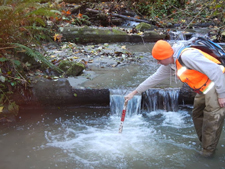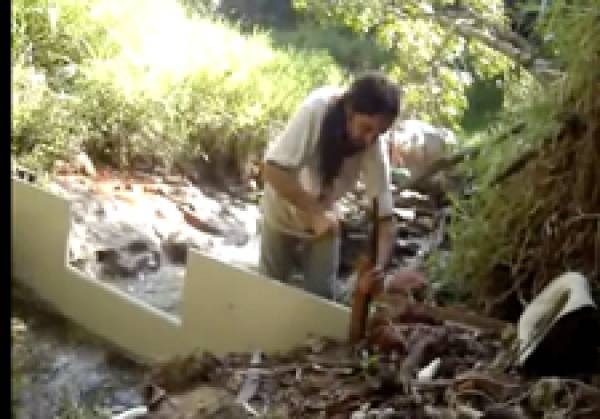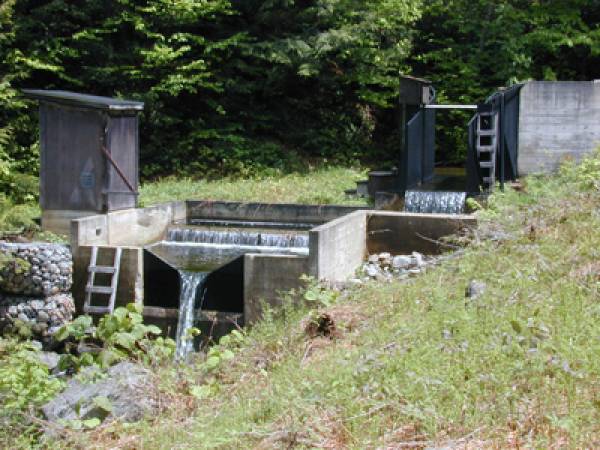This website uses a variety of cookies, which you consent to if you continue to use this site. You can read our Privacy Policy for
details about how these cookies are used, and to grant or withdraw your consent for certain types of cookies.
Energy Dissipation Downstream of a Weir
 The usual method of dissipating the energy of a weir's nappe is by a hydraulic jump downstream of the weir. In an earthen channel, if the is no provision for this dissipation of energy, there will be a tendency to sour the downstream channel. This scour and erosion of the channel may become excessive resulting in the undermining of the weir and potentially eroding the downstream channel banks.
The usual method of dissipating the energy of a weir's nappe is by a hydraulic jump downstream of the weir. In an earthen channel, if the is no provision for this dissipation of energy, there will be a tendency to sour the downstream channel. This scour and erosion of the channel may become excessive resulting in the undermining of the weir and potentially eroding the downstream channel banks.
A reinforced apron downstream of the weir is one approach to controlling the dissipating the energy. In general, this reinforcement should extend at least 4 Hmax (maximum anticipated head) or 5-feet [1.5 m], whichever is greater.
When rip rap is used to armor the downstream channel, generally, the larger the rip rap the greater the local velocity / energies that can be controlled.
Where armoring is not possible another solution is to provide a depression in the downstream channel floor so as to create a stilling basin. Properly designed, a stilling basin forces the hydraulic jump in a defined area.
Now naturally not all sites will require energy dissipation – particularly those bedded in rock or secured in concrete, however were the weir is installed in a natural, earthen channel where neither of these are present, energy dissipation should be considered when selecting a site.
Related Blog Posts
Explore more insights in our blog.

LOCATIONS IN ATLANTA, GA & BOISE, ID




